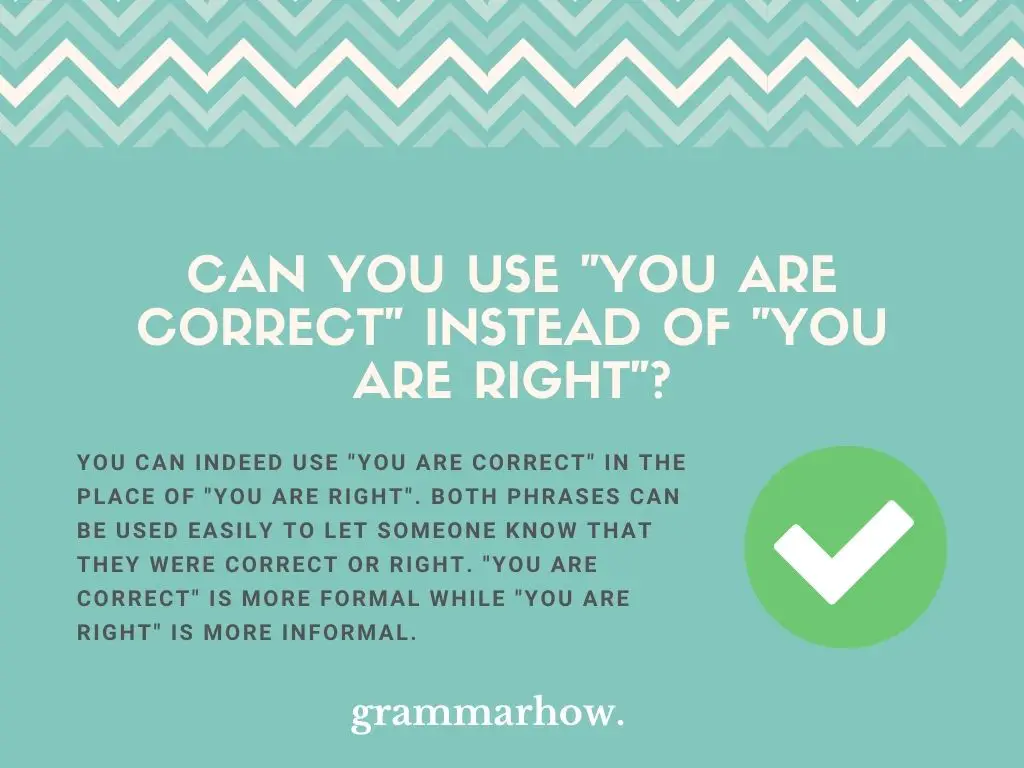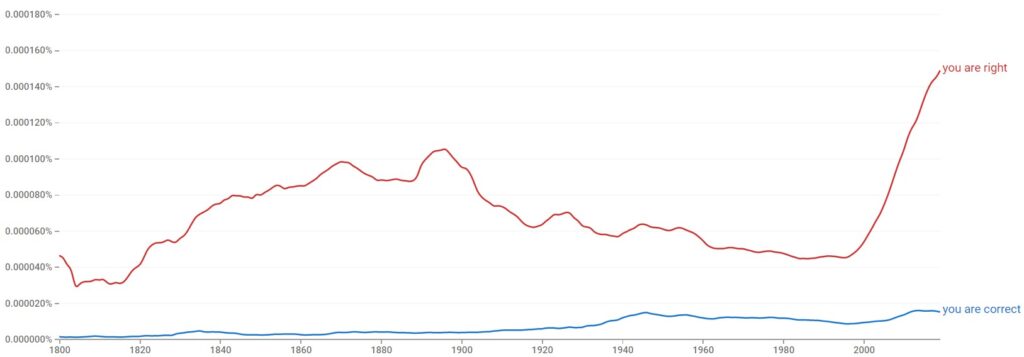Knowing how to tell someone they were correct or right may be difficult, especially if you were wrong in the situation. This article will go over how to use ‘you are correct” and “you are right”.
Can You Use “You Are Correct” Instead Of “You Are Right”?
You can indeed use “you are correct” in the place of “you are right”. Both phrases can be used easily to let someone know that they were correct or right. “You are correct” is more formal while “you are right” is more informal.

“You are correct” is more formal, but there is no need to avoid it. “You are right” is a much more casual phrase. However, both of these phrases can be used despite whatever the situation may be.
What Does “You Are Correct” Mean?
“You are correct” is a phrase used to announce to another person they were right about something. You do not have to be in the wrong in order to state someone is correct. They may have gotten an answer right or come to you with a question.
Using the phrase “you are correct” can be an easy way to let someone know that they got a correct answer, had the right idea, or were correct about something in a debate. It can be used in more formal and important settings, but there is no need for it to only be used formally.
Below are some great examples on how “you are correct’ can be used in a sentence.
- You are correct in answering that an angler fish can be over three feet long.
- You are completely correct to show me these discrepancies in our finances.
- I can’t believe that you were correct about Stephanie being such a jerk.
- You are correct in your decision to let me know what’s been going on.
- I hate to admit it, but you are correct and a hotdog is technically a taco.
What Does “You Are Right” Mean?
The phrase “you are right” is used to let another person know that they were correct about something. This could be from an argument you were having, answering a question they had, or letting them know they got an answer or solution to something right.
The phrase “you are right” is a more casual phrase used more often as a result. This phrase is not confined to casual and informal settings but can be used in important or formal conversations while still being appropriate.
Some references have been provided for you to see how “you are right” can be used in a sentence.
- You are right that my client was not home last night, but she was not alone.
- You are right and have won yourself a free trip to Ohio!
- I can’t believe that you are right about it being more cost-effective to house the homeless.
- You are right in stating the correlation between the vaccine and increased heart attacks.
- You think you are always right and that you’re never wrong.
How Prevalent Is The Use Of “You Are Correct” And “You Are Right”?
The use of the phrase “you are right” has always far outweighed the use of the phrase “you are correct”. This can easily be seen in this graph provided by Google Ngram Viewer which compares the usages of the two words side by side.

Recently at the start of the 2000s, the use of “you are right” has tripled while “you are correct” has maintained its low, but consistent, usage during this time.
Can “That Is Correct” Be Used Instead Of “You Are Correct” Or “You Are Right”?
“That is correct” can safely be used instead of “you are correct” and instead of “you are right”. This is due to the fact that you do not have to personally address a person each time you want to tell them they are correct.
Here are a few examples of how “that is correct” can be used.
- That is correct, but you could be nicer.
- That is correct that she was not present.
- He’s allergic to peanuts, is that correct?
- Sally, you already know that is correct.
- That is correct that orange is a secondary color.
You Are Correct – Synonyms
Provided below are some synonyms for “you are correct”.
- You Got It
- That’s Accurate
- Exactly
- Great Answer
- That’s An Appropriate Answer
You may also like: “Right” vs. “Correct” vs. “True” – Difference Explained

Martin holds a Master’s degree in Finance and International Business. He has six years of experience in professional communication with clients, executives, and colleagues. Furthermore, he has teaching experience from Aarhus University. Martin has been featured as an expert in communication and teaching on Forbes and Shopify. Read more about Martin here.
